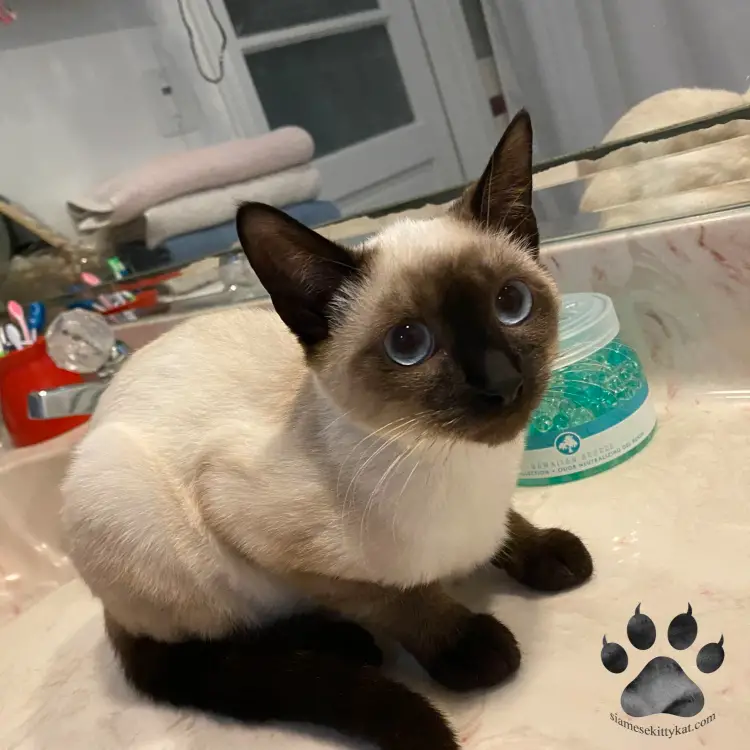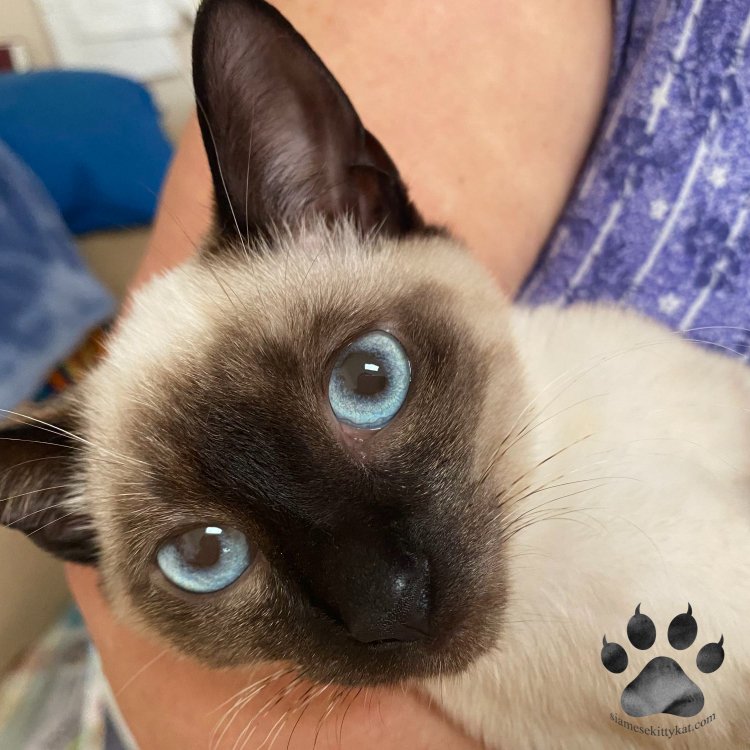Our faithful Siamese – known for running the household, their dog-like behavior, and often than not, being a little too clingy.
Another strange (but lovable) trait is their need to be vocal all of the time. If you’re lucky enough to be graced with one of these felines, you know just how much attention they demand – one of the big reasons why they’re so vocal!
So, when this chatty little catty gets quiet, should you be worried?
A Siamese cat suddenly losing their voice or not wanting to be vocal is a cause for concern. Ironically enough, no sound is sometimes a cry for help. That’s why it is always important to listen with your eyes as well as your ears.
Why are Siamese cats so vocal?
One of the reasons Siamese cats are so widely loved is because of their social personality. While most felines are known for being rather aloof, the Siamese cat is in a league of their own.
They want to be with you 24 hours a day!
Forget about your “me time.” That simply doesn’t exist when you own one of these pretty little kitties. If you fail to show them enough attention, they will repay you with a rather loud (and sometimes annoying) meow.
Here are a few reasons why your Siamese meows so much:
Why is my Siamese cat not vocal?
Siamese Cat Not Vocal – Is Something Wrong?

Cats are funny creatures. They don’t always tell us when they’re not feeling their best. And sometimes, their silence is the biggest hint you’ll get.
The problem is: A cat is every bit as likely to become more vocal if she’s trying to tell you something is wrong. So what you need to look for, is any change to her normal communication method.
If your usually chatty Siamese cat stops talking out of nowhere, it could be a cause for concern. Any number of things could be amiss, including:
Before you start to worry, though, it’s best to consider the simplest answer. Believe me, I’ve been there. I will immediately jump to the worst-case scenario. When in all actuality, they’re mad at me, or each other. If the silence continues for longer than a couple of days, seek veterinary help.
What can I do about my vocal Siamese cat?

My cats meow at me for breakfast at 4 am because they know I’ll sleepwalk to the food bowl to stop the yowling. This is because I’m a pushover. I melt at the first plaintive cry combined with eye blink. Don’t be me.
Here are some ways you can get a good night’s sleep, and live in harmony with your Siamese cat:
Behavioral Training: We call ourselves fur-parents for a reason. As with children, the key to stopping a temper tantrum in a cat is positive reinforcement.
So if, like me, you reward your cats’ desire for an early breakfast by complying, this will become ingrained. If instead, you offer an extra treat at 6 am, they will become conditioned to sleep through the night. This treat-based positive reinforcement works with almost anything by the way. Especially if you go with Temptations! Find a great deal here on Amazon.com. (Insert Amazon link).
Patience: Sometimes you have to let them cry it out. While it might be torture, this has proven to be the best path to silence for babies and cats. Once the Siamese has said everything there is to say, he is usually satisfied. Especially if you set strategy number one in motion first.
Feeding On a Schedule: Siamese cats are incredibly intelligent. Because of this, they know that loud meowing can lead to food. So, if your Siamese tends to meow for food, try feeding them on a schedule. This will cut down the amount of time they spend meowing or begging for food. Also, ignore all their loud demands and only feed them once they are quiet.
Be Attentive: This one should go without saying, but the reality is, we get busy. In today’s hamster wheel of work and family priorities, it can be easy to take your cats for granted.
Don’t do this. After all, they’re family too, and they deserve a prime spot on the wheel. As long as they don’t eat the hamster.
If you already spend enough time with your Siamese but they still seem lonely, consider getting another cat. Keep in mind, Siamese cats are very territorial and needy, so if you think your cat can’t handle this, don’t try. If you do want to introduce another kitty into both of your lives, always introduce them slowly. Once your Siamese has accepted your new cat, they will have a friend for life.
Are all Siamese cats vocal?
Unless you’ve got a mute kitty on your hands, all Siamese cats are vocal! Whether it be down to reminding you it’s dinner time, asking to play, or simply telling you they love you – your house will always be filled with their adorable meezers.
If your Siamese has become quiet, this could be a sign that something is wrong. Listen with your eyes – not just your ears. And if you believe your Siamese is suffering in silence, it’s time for a trip to the vets.
We gathered all the health tips tailored toward maintaining your Siamese cat’s optimal well-being. Check it out here: Siamese Cat Health: A Complete Guide
Get your FREE Siamese Cat 2026 Printable Calendar

